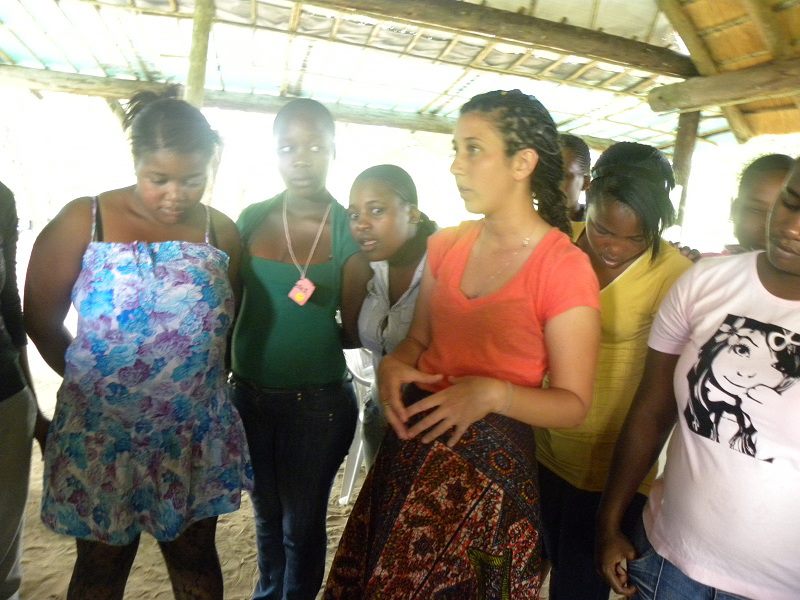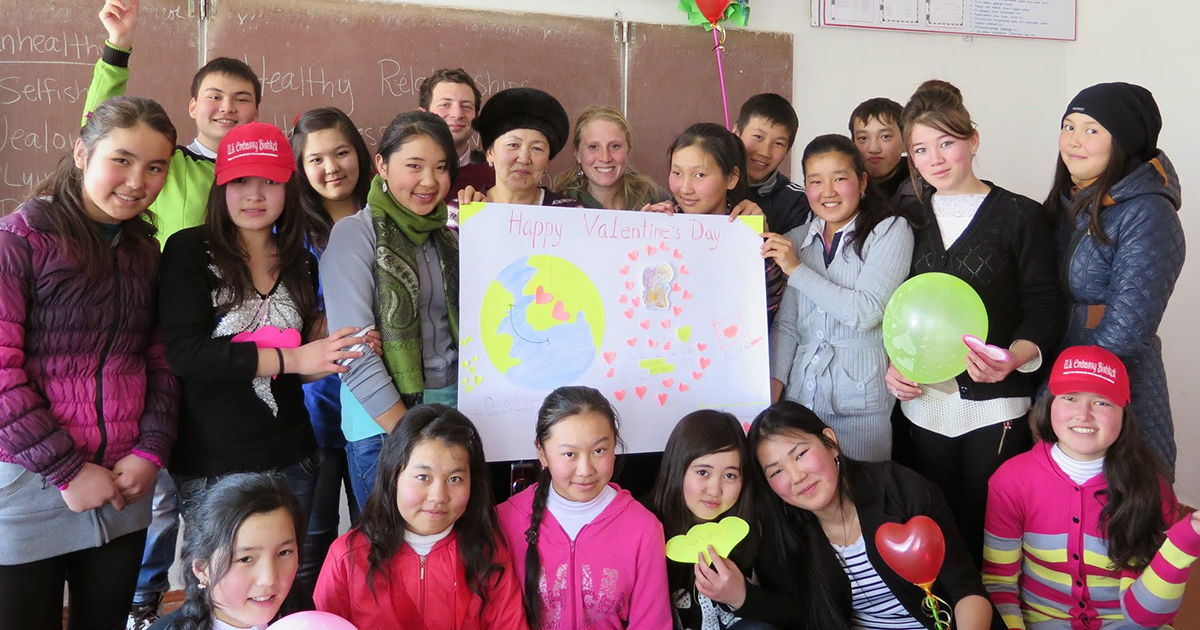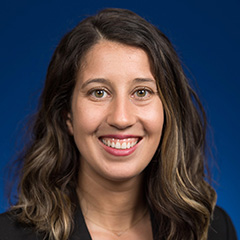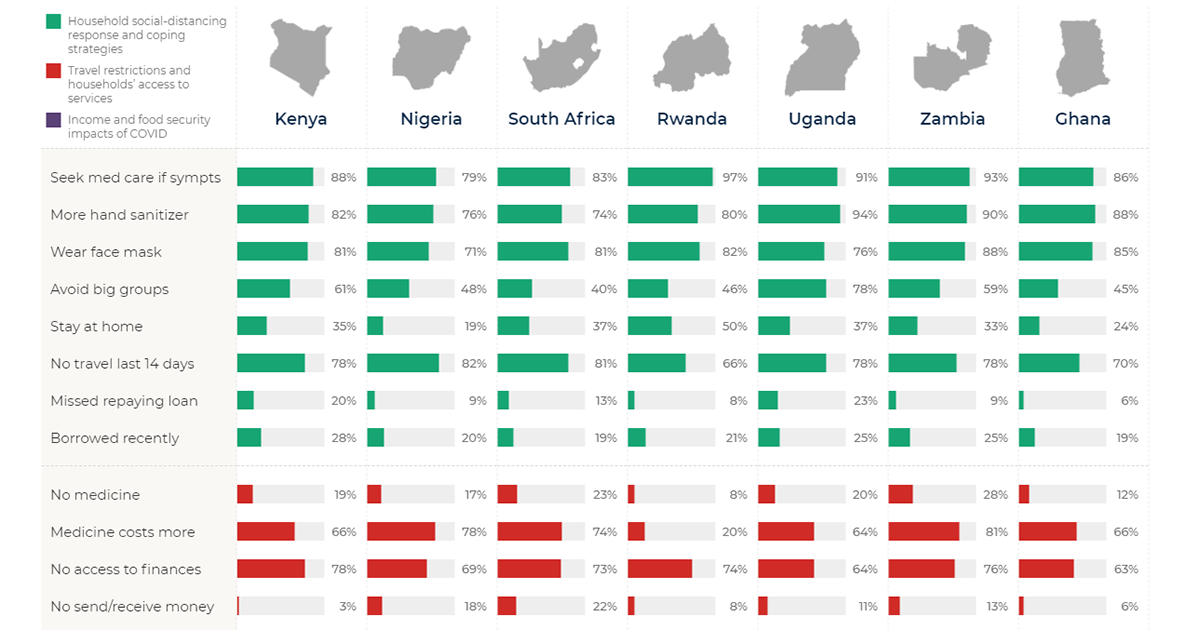Editor’s note: Ryan Ruggiero served as a Peace Corps volunteer in KwaZulu Natal, South Africa, from 2010 to 2013. Britta Seifert served in Kyrgyzstan from 2013 to 2015.
This year marks the 60th anniversary of the Peace Corps, created by executive order in March 1961 to promote world peace and friendship by providing Americans with opportunities to serve in developing countries around the world. Yet in March 2020, because of the COVID-19 pandemic, the United States evacuated all of its active volunteers from the 61 countries in which they were serving and has yet to send current volunteers back into the field. These circumstances make the anniversary bittersweet for the community of more than 7,300 current volunteers and hundreds of thousands of Returned Peace Corps Volunteers (RPCVs) that we are proud to be a part of. As the Peace Corps community celebrates its rich history, it does so knowing that evacuated volunteers are missing out on experiences that helped to define the lives of many RPCVs, including us.
We joined the Peace Corps to improve the world around us, learn about other cultures, and grow as individuals. By living and working with counterparts in low-income communities for several years, we learned valuable lessons about the importance of developing equitable partnerships to address social problems. And we’re not alone at Mathematica: 29 people across the company served in 33 countries between 1983 and 2015. Together, we wanted to reflect on some of the lessons that stuck with us from our Peace Corps service, and how that service continues to inform our work today.
Respect local culture and value lived experiences when developing solutions.
Peace Corps volunteers often arrive in their host communities eager to share their skills and implement new programs. Many of us quickly learn, however, that to implement equitable and sustainable initiatives, we must follow the lead of local counterparts who deeply understand the issues their communities face. By entering communities with humility and respect for cultural norms, we believe we can do work that is more likely to have a lasting impact after we are gone.
Kristen Velyvis, who served in Senegal from 1991 to 1993, told us how she learned this lesson when she planted tomato seedlings in the women’s compound garden one morning, only to find that the plants had died by evening. “My host father quietly came to me and said, ‘We transplant in the evenings here. The sun is very hot for those little plants.’ It was a small lesson, shared kindly and humbly. It really struck me how audacious it was for me to think I could come in and teach local farmers much. The knowledge, experience, and expertise around me required respect, and I had so much to learn.”
The same is true of our work at Mathematica, where we respect local culture (even in the United States) and collaborate closely with stakeholders and clients to ensure our work is responsive to the communities that are directly impacted. Sara Litke-Farzaneh, who served in Mali from 2009 to 2011, shared, “One of the biggest lessons I learned in the Peace Corps was how important and challenging it is to objectively understand a community’s needs and collectively brainstorm solutions. This understanding is also central to our work at Mathematica. As evaluators, we strive for objectivity, but we still amplify certain voices through our data collection and apply our individual lenses through our analysis. We can mitigate this effect by making sure our project teams have lived experience reflecting the communities that are impacted by the programs we’re evaluating. We can also incorporate participant voice and stakeholder input from the proposal design phase onward.”
Make research findings accessible and action-oriented.
Volunteers often work in partnership with direct service staff to address social problems ranging from high rates of HIV/AIDS to unemployment. Although the expertise and knowledge of practitioners or direct service staff is integral to finding solutions, practitioners may not always be using evidence to support their programmatic decisions. Randall Blair, who served in El Salvador from 2002 to 2004, built latrines with community members to address sanitary waste, without knowing if there was evidence to support their efforts. “It was a good Band-Aid, but pit latrines don’t have much science behind them,” he said. This experience inspired Blair to become a researcher to find ways to make research more accessible to practitioners.
A coauthor of this blog post saw firsthand how staff at the HIV/AIDS nonprofit in her village often did not have the time or technical skills required to read complicated research studies. This experience taught her the importance of sharing evidence from our evaluations and studies in ways that make it easy for practitioners to use. We can focus on sharing lessons or key takeaways in short briefs and write using clear, accessible, plain language.

Ryan Ruggiero facilitates a goal setting session with youth during the 3-day Camp GLOW (Girls Leading Our World) she organized while in rural South Africa.
It is also important for researchers to understand that findings in one implementation context may not apply or be culturally appropriate for another context. Drew Koleros, who served in Cameroon from 2003 to 2005, said, “Often, external experts come into a new setting with technocratic solutions to local problems based on evidence of how the solution worked in a particular context. Translating or adapting that solution to a new setting requires a deep understanding of the local implementation context. This can only happen by building meaningful relationships to better understand local power dynamics, socio-cultural norms, and lived experiences of impacted communities.”
Take the time to develop relationships and build trust.
Volunteers often find that relationships are the foundation to their work in the Peace Corps, and that building trust takes time, especially when you are an outsider to the community. “It probably took six months to build trust with the right people to start working efficiently and with real community support,” said Randall Blair.
Vulnerability and time are key elements to building strong relationships. Julie Abella, who served in Uzbekistan from 2004 to 2005, reflected, “Learning to be vulnerable with my primary education counterpart was difficult at first since she wanted to believe I had all of the answers. Once we both realized that we were able to make mistakes and talk about them, we developed a new level of trust and friendship that continues even today.”
At Mathematica, achieving success in our work depends on strong relationships with our partners, grantees, and team members. It is essential to take time to build trust, to avoid the common perception that researchers are often outsiders or disconnected from the realities on the ground. One of the coauthors of this blog post learned that relationships are built in small moments: a few minutes of chatting at the start of a call, checking in to see whether a colleague has too much on their plate, and, especially during the pandemic, acknowledging that we are all people with lives and challenges outside of work. By sharing our time and being vulnerable, we can collaborate more effectively with our partners and do work that is more impactful and responsive to communities.
Work focused on improving lives is challenging, but so worth it.
The Peace Corps is often called “the toughest job you’ll ever love,” and many volunteers will attest to this statement. Despite the hardships, setbacks, and lack of modern conveniences, volunteers find deep meaning in the friendships formed in their communities and believe in the work they are doing to improve those communities. “I learned so many lessons from my time as a Peace Corps volunteer,” said Kristen Velyvis. “I have lifelong friends, a more global outlook, and a humility that the cultural immersion of the Peace Corps can offer. I can’t think of a more influential experience in my life.”
At Mathematica, our work is driven by our mission to improve public well-being. We accomplish our mission by collaborating closely to improve programs, offering expertise in data analytics, and evaluating programs’ impact on improving outcomes, such as employment, health, or education. Conducting rigorous research and working to improve programs is not easy. Sometimes, it is hard to make sense of the data or to even get the data you need. But we’re driven by our mission to do the work that we do. As Ella Gifford-Hawkins, who served in Equatorial Guinea from 1988 to 1992, said, “People have always been at the heart of my work; they are the vehicle by which change occurs. If you believe in your work’s mission, it’s amazing what you can change.”




